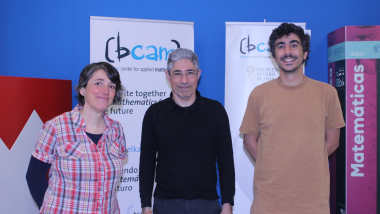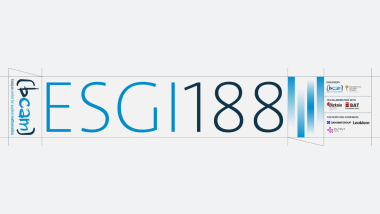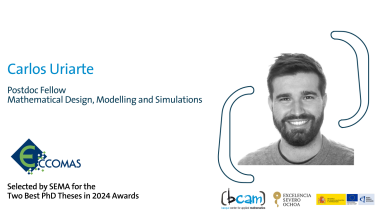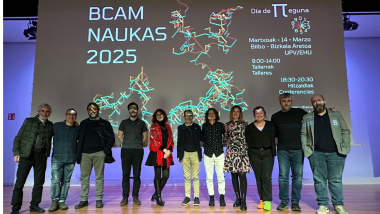BCAM hosted a workshop on “Theoretical and Experimental Approaches to Goal-Directed Behavior”
- The workshop was hosted from October the 16 to the 18th, 2024.
- Experts from a wide range of disciplines gathered to explore goal-directedness in biological and non-biological systems.
The Basque Center for Applied Mathematics (BCAM) in Bilbao, Spain, hosted a workshop entitled “Theoretical and Experimental Approaches to Goal-Directed Behavior” from October 16-18, 2024.
Experts from a wide range of disciplines gathered to explore goal-directedness in biological and non-biological systems.
This interdisciplinary workshop tackled a profound question: how do systems transition from seemingly purposeless physical processes to exhibiting purposeful, goal-directed behavior, a hallmark of life? Researchers from fields such as mathematics, thermodynamics, and machine learning discussed this question together with chemists and biologists. The workshop considered the question from theoretical, experimental, and operational perspectives.
The sessions covered a broad range of topics. Several talks discussed theoretical definitions of goal-directed behavior, as well as the relationship between goal-directed behavior and variational principles from nonequilibrium thermodynamics. Other talks proposed conceptual and quantitative definitions of “viability”, which describes systems that exhibit irreversible transitions from active (life-like) states to passive (death-like) states. Formal notions of emergence and agency were also discussed from a theoretical perspective. Several sessions concerned experimental and computational models of goal-directed systems. For instance, experimental researchers presented active-matter systems that exhibit self-propelled motion, collective behavior, and goal-oriented dynamics. Computational biologists demonstrated how goal-directedness serves as a predictive technique for microbial metabolism. At the end of the workshop, attention turned to goal detection in artificial intelligence and artificial life.
Overall, the workshop underscored the need for interdisciplinary approaches to the study of goal-directed behavior. Such cross-disciplinary collaboration is essential for understanding models that range from simple chemical systems to sophisticated computational frameworks, offering new perspectives on the origins of life and the emergence of purposeful behavior in both living and non-living systems. The workshop also fostered potential future collaborations across fields, helping to lay the foundation for a robust community of researchers interested in goal-directed behavior.
Organizers:
- Miguel Aguilera (BCAM), Local Organizer
- Martin Biehl (Cross Compass, Japan)
- Artemy Kolchinsky (University Pompeu Fabra, Spain)
- Richard Löffler (University of Copenhagen, Denmark)
- Omer Markovitch (BMSIS & University of Lisbon, Portugal)
This workshop was generously funded by Grant ID 62828 from the John Templeton Foundation.

Related news
Zentroari buruz
Zentroari buruz
ESGI 188 (European Study Group with Industry) Bilbon izango da 2025eko maiatzaren 26tik 30era
BCAM pertsonak




